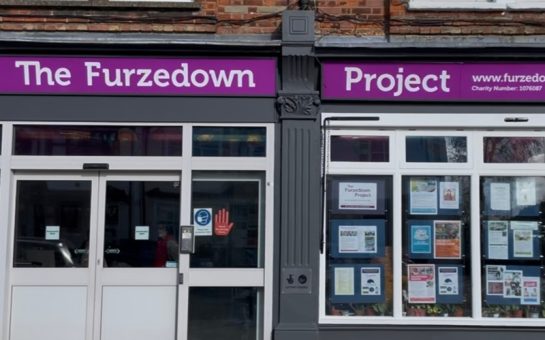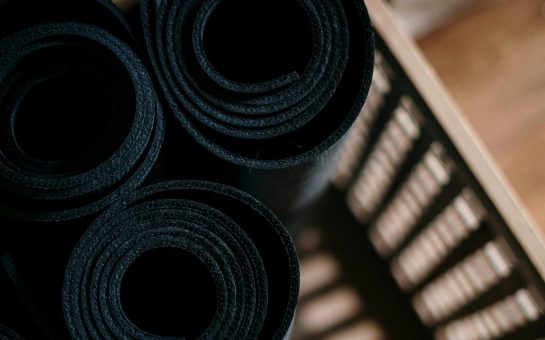![]() By Milly Veitch
By Milly Veitch
January 28 2020, 10.25
Follow @SW_Londoner
An NHS café in Wandsworth has become an emergency haven for those suffering from a mental health crisis.
Commissioned by the South West London and St George’s Mental Health NHS Trust, the Recovery Café is a safe space for people to gain assistance to deescalate and receive mental health advice.
Anyone over the age of 18, who is feeling overwhelmed, stressed, anxious, lonely or sad can visit the café, without having to make an appointment or face a long wait like in A&E.
Run by Hestia, a support provider for adults in crisis, the café is based in Tooting and open to residents across Wandsworth, Sutton, Richmond, Kingston and Merton.
Hestia director of operations Gayle Lowery-Jones said: “We help anybody who could be experiencing bereavement, loss, unemployment, financial crisis, domestic abuse – something that is pushing them to the edge of their ability to cope.”
The café has trained staff and volunteers who help to de-escalate people’s mental distress and work with them to help them self-manage their mental health problems, and is able to welcome up to 25 customers at a time.
Ms Lowery-Jones said: “We spend a lot of time listening to people and helping them to self-advocate and draw on their own strength.
“Our focus is always on supporting individuals to help themselves and having golden threads running through everything we do around supporting people who have fallen in their recovery journey and co-producing our delivery with individuals because they are experts in their own experiences.”
The café offers a low-stimulus room with soft furnishings and projected lights, a large communal hall designed to counteract feelings of isolation and one-on-one sessions to talk through your anxieties.
Ms Lowery-Jones added: “Sometimes they just want someone to listen, or they may have narrowed down all their options and think the only option left is suicide, and we talk to them very openly about what their plans might be and how to keep themselves as safe as possible.”
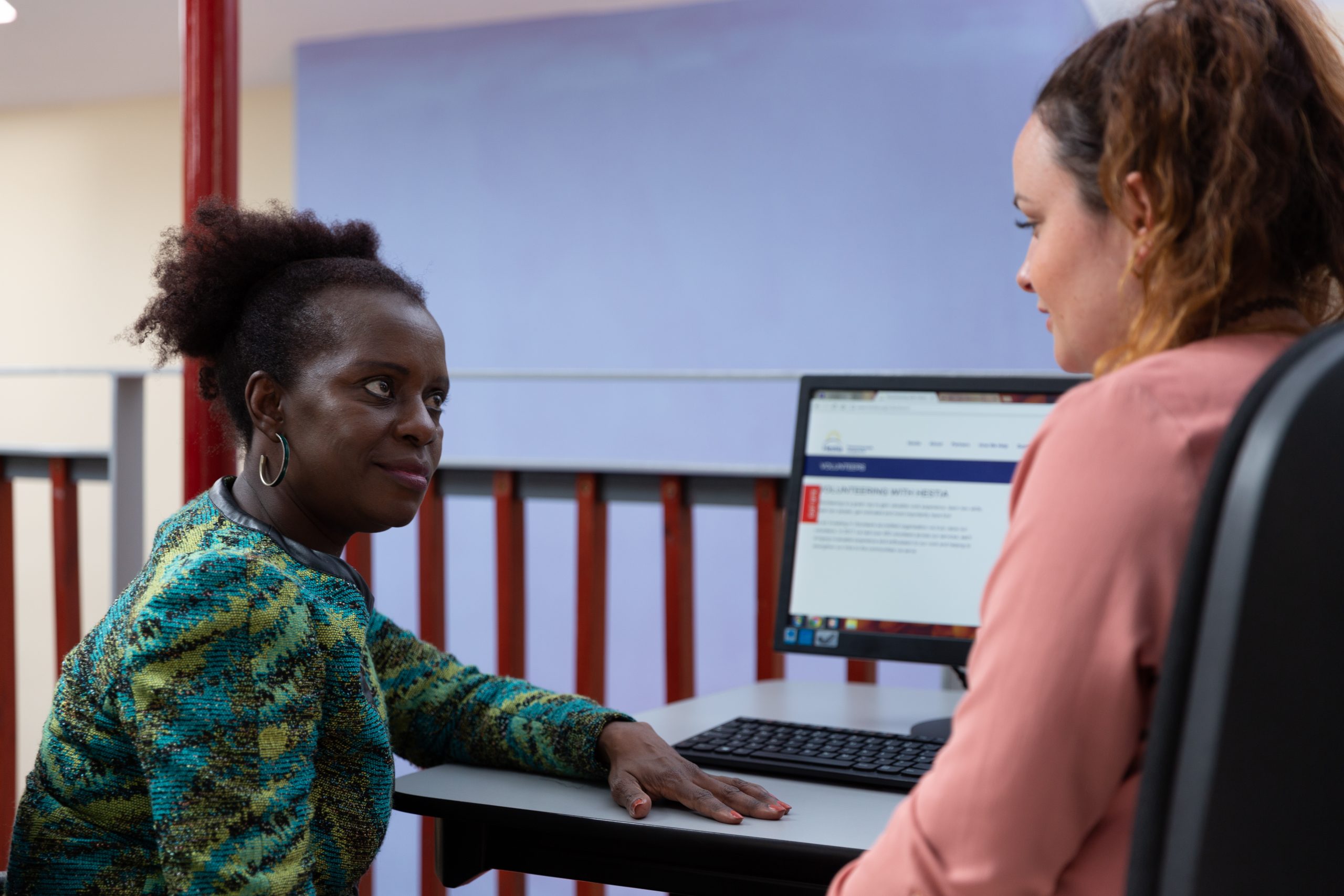
Ms Lowery-Jones says there is a huge variety of people who come to the café for a wide range of challenges, with some people just seeking company or are under a great deal of stress that day who just need a haven for an hour or so.
She explains that the café came about as ‘a response to the crisis of the times’ with the NHS becoming overwhelmed with the number of patients and lack of funding.
She said: “The aim is to reduce the likelihood of people requiring the accident and emergency services.
“We are a better and safer place to go because there is a huge pressure on those statutory services and we’re able to give people quiet time, one-to-one time, engagement and activities in a very calm environment that can really help to de-escalate that level of anxiety they might be experiencing.”
Mind’s head of policy and campaigns Vicki Nash said: “Mental health services are in urgent need of investment. Only one in three people who try to access mental health support through the NHS get any help at all.
“Staff shortages are also leading to increasing pressure on NHS staff who are struggling to provide high quality care for the increasing numbers of people who need support.
“The government recently reaffirmed its commitment to the NHS Long Term Plan, including the £2.3bn put aside for mental health services. This is welcome but in order to counteract years of under-funding, it is vital that this money reaches the front line to ensure that anyone with a mental health problem gets the support they need, when they need it.”
The Recovery Café does not exist in isolation from the hospital, instead it works alongside the trust and acts as a “conduit” to guide people to relevant services and take the strain off the emergency services.
Ms Lowery-Jones emphasizes the café helps to get to the root of a customer’s mental health issues, as well as calm them down, so staff are able to guide them to services tailored to their specific issues and prevent the likelihood of them reaching the same levels of distress the next night or week.
She said: “If a person is struggling with a housing issue and the recovery café wasn’t there, they might be in such a level of distress they may feel they had no alternative than to go to A&E where they will receive clinical risk management, but they’re not going to get any help with their underlying housing issue.
“So we really serve as a place to de-escalate and then signpost people to those services that they need.”
The cafe makes an average 150 referrals a month to support services that deal with underlying issues causing stress such as befriending schemes, bereavement counselling, drug and alcohol support groups, further education, and housing advice.
Additionally, the Wandsworth Home Treatment team drop in on every session, so they can take referrals or assist staff in high risk situations requiring clinical oversight.
The café also runs a number of activities in order to keep customer’s minds focused on positive activities and get them to get rid of levels of distress by being active or creative.
There are gentle physical activities like Zumba dedicated to getting people’s endorphins running to improve mood and to encourage people who don’t have the energy or motivation to do anything.
Current customers who have ‘graduated’ co-produce activities, such as writing classes, drama groups, quiz nights and cooking sessions.
There are also trained art therapists and yoga instructors who are either people who want to bring their skills to a particular group of people, members of the local community or people who have also gone through similar challenges and what to give something back.
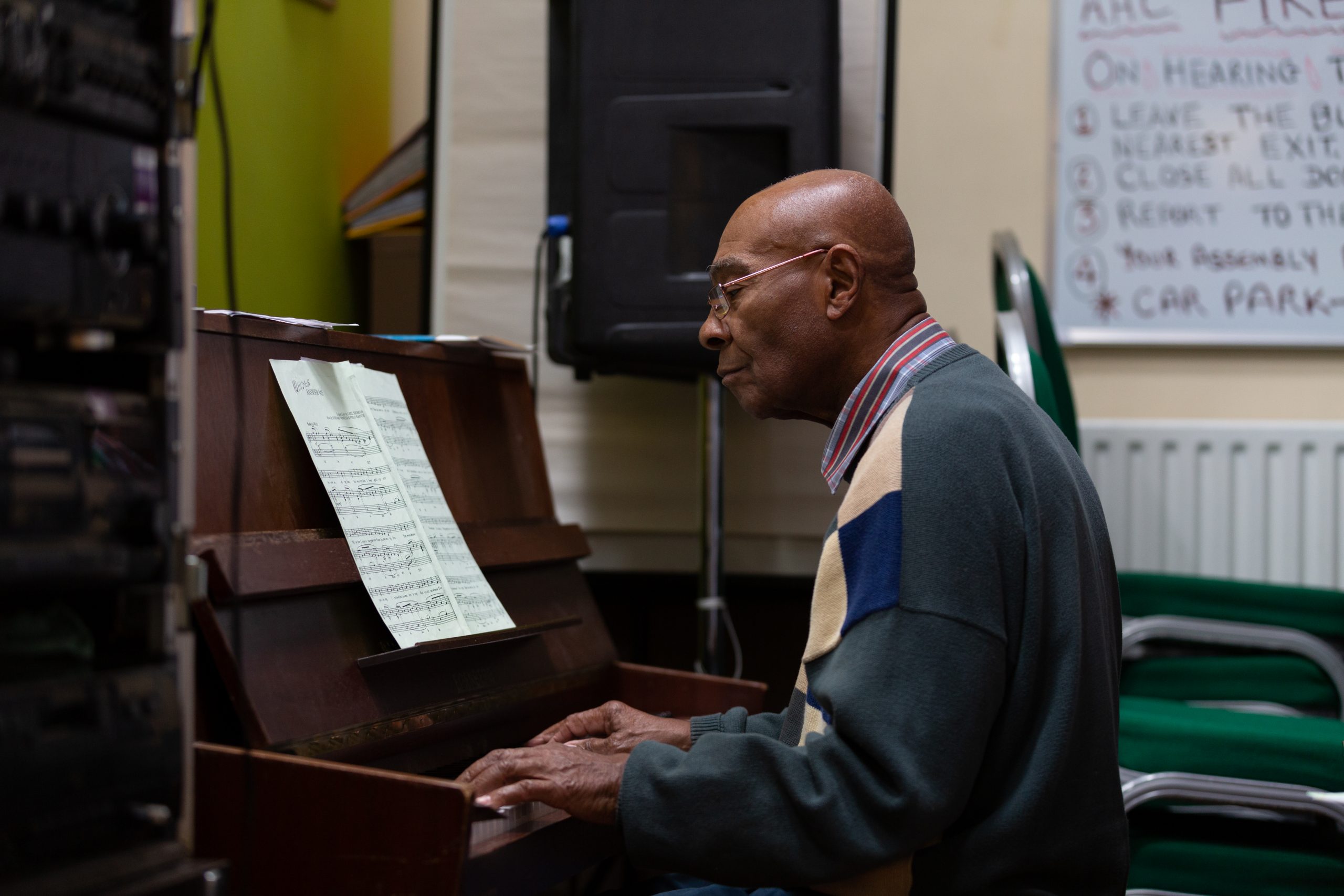
Ms Lowery-Jones explains the importance they place on getting previous customers to volunteers as their lived experiences mean they can really understand what the café visitors are going through.
“It really helps people in the café to see other people’s recovery journeys, and see there is hope, whilst at the same time helps the volunteers to know they are making a difference,” she said.
She added: “We have a wonderful guy who runs our writing and recovery groups, who originally came in as a customer and now volunteers to run the groups. He said he never would have done anything like that a few years ago, but that it actually helps him to support other people with their own recoveries.”
For the café it also helps to maintain the contact and support for customers without risking them becoming over reliant on the café.
Ms Lowery-Jones said: “The café is part of this urgent care pathway, so we need to be really clear with people – you come in because you need us, because you need an intervention, or to help you manage whatever mental health crisis you are having, but actually the whole point of coming here is to help you not need to come here anymore.”
Hestia carries out a survey for customers three months after attending the café and the responses they’ve received show that customers are in a better mental state and the vast majority are not utilizing the strained NHS services.
Hestia carries out a survey for customers three months after attending the café and the responses they’ve received show that customers are in a better mental state and the vast majority are not utilizing the strained NHS services.
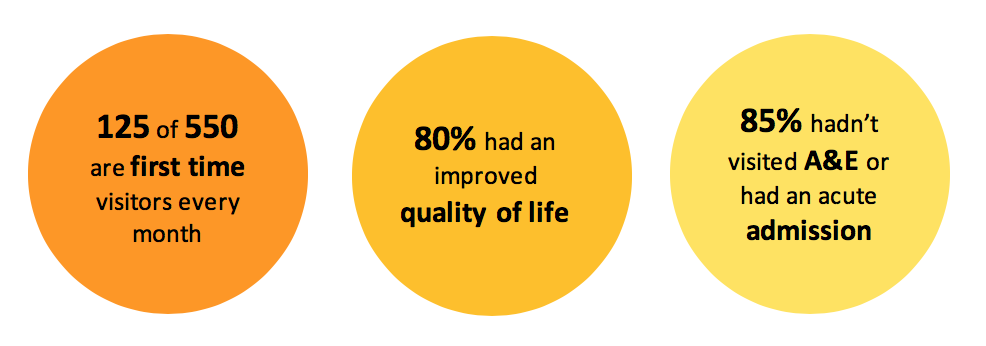
Ms Lowery-Jones said: “I think it is undoubtedly a service that really changes people’s lives – It is a service that people can feel safe in.
“We’ve had people saying even just coming once made them think about things differently, made them more confident and motivated them to seek out other more constructive ways of coping with their mental health.”
Additional recovery cafés will be opening in London in the next two months, with another already running in Wimbledon by the Community Drug and Alcohol Recovery Service, and Ms Lowery-Jones is working on getting more across the county.
She said: “I am really personally and professionally committed to this model.
“I feel it has some momentum now we have some of the data from earlier cafes that is giving the people who are able to commission this type of services more confidence that a non-clinical, therapeutic service really should be part of their care pathway.
“Any town that has a big enough population needs one of these. I think it’s really important that people know that whenever they need us, we are here.”
The Recovery Café is open 365 days, from 6pm – 11pm (Mon-Fri) and 12 noon – 11pm (Sat / Sun & bank holidays).
To find out more email [email protected] or call 07794 394920.


